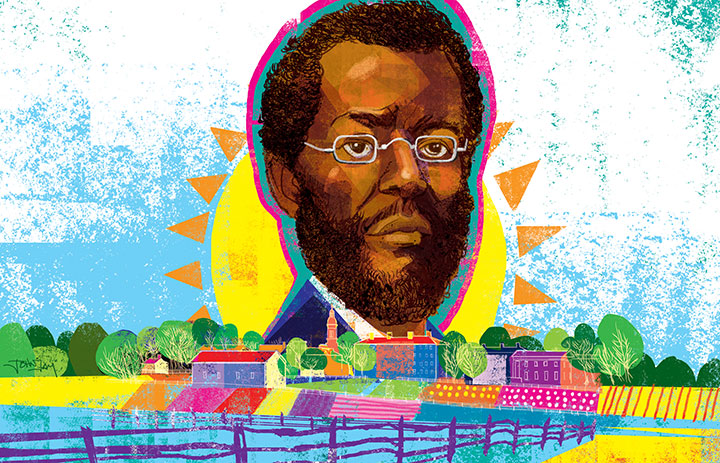In The Souls of Black Folk, a profound and lyrical exploration of what it means to be African American, W.E.B. Du Bois devoted a chapter to Alexander Crummell, a New-York born, black Episcopal priest, missionary, and professor who died in 1898, five years before the publication of Du Bois’ book.
By precept and example — in the United States; in England, where he earned a degree from Cambridge; and in Liberia — Crummell championed the “vitality of the Negro” when most denied this race its full humanity. “The more I met Alexander Crummell,” Du Bois wrote, “the more I felt how much that world was losing which knew so little of him. In another age he might have sat among the elders of the land in purple-bordered toga; in another country mothers might have sung him to the cradles.”
At Princeton, where Du Bois was told that African Americans would find its “proximity to the South and the large number of Southern students here” disqualifying, Crummell came as close as anyone before emancipation to bridging the gulf that separated black and white. In 1862, on a campus denuded of Southern students, Crummell delivered a lecture on the “Civilization of Africa” that was described as follows by the editor of The Nassau Literary Magazine, writing in its April issue.
“Two years ago, a black man lecturing to the learned dignitaries of this place would have been the occasion of effigies and rows; now, anomalous as it is, it must be marked by the observant world as a step in our college history. ... The speaker, though of a sable hue, was prepossessing in his appearance, the arrangement of his discourse masterly, his style energetic and elegant, and his delivery remarkably graceful. So rich an intellectual treat is rarely served us, and had it not, to many, lost much from the force of prejudice, would have beggared the admiration of all.”
Thus did Crummell prefigure what Princeton at its best could be.
John S. Weeren is founding director of Princeton Writes and a former assistant University archivist.












No responses yet